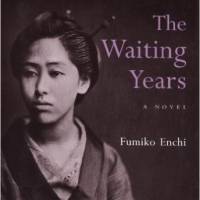A tale of unanswered prayers, Fumiko Enchi's "The Waiting Years" is an elegy on the subservience that once haunted Japanese womanhood.
The Waiting Years, by Fumiko Enchi
204 pages
Kodansha USA, Fiction.
Published in 1958, this Noma Literary Prize-winning novel is a halfway mark for Japanese feminism. In the end, Tomo schleps up a wintry slope in a metaphor of a bitter wait — the struggle for modernization and women's equality. Nearing the end of her life and driven by spiteful pride, she's made it barely halfway to the top, where she hopes a better world lays because "if it were not there waiting, then nothing made sense."
Reading "The Waiting Years" is a reminder of how far women — and men for that matter — have come in Japan. It also evokes a more universal note: A world where the choices some women now have remain marks on a wintry slope.
Read archived reviews of Japanese classics at jtimes.jp/essential.



